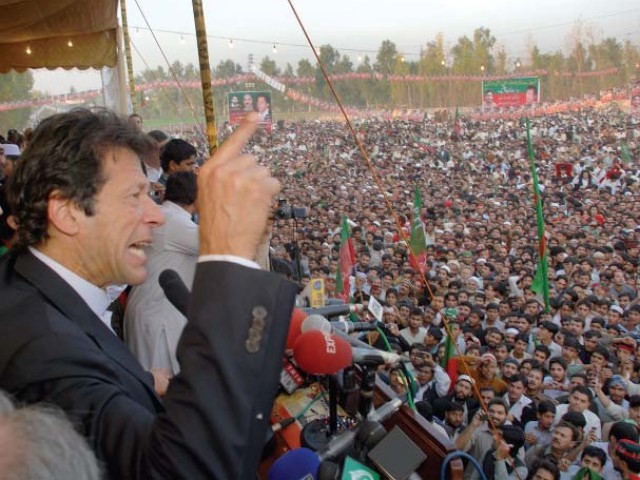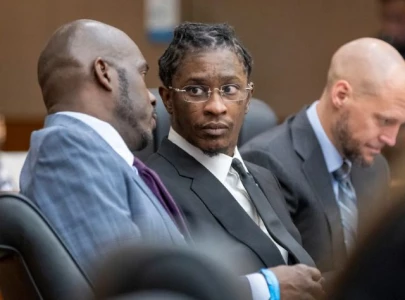
Pakistan Tehreek-e-Insaf Chairperson Imran Khan has recently made attempts to review the performance of his party’s government in Khyber-Pakhtunkhwa. As part of his bid to analyse the K-P government, he invited media personnel from Peshawar to his residence in Bani Gala in Islamabad and also invited people from all over the country to call on radio shows where he was part of the panel in the last week of January.
It is premature to say what Imran’s analysis of his party’s strategy and government installations will result in. However, assessing commitments he and his colleagues made with people of this volatile part of the country is sure to be a hard task.
One thing is quite clear – print, social and electronic media do not state the hard truth and despite Imran’s wishes and efforts, the ground reality remains different and the public remains deprived of its rights to justice and merit-based growth. Claims and promises about change and reform fall short when instead of tracking media reports, one visits police stations, civil courts, revenue offices or just takes a stroll on the road to meet traffic sergeants.
List of public grievances
Provision of health services is becoming more complicated by each passing day. The education sector during PTI’s regime has remained corrupt and incompetent. Injustices in appointment and recruitments can be judged from cases at a number of institutions including the K-P Assembly, medical colleges, hospitals and educational institutions in Swabi, Nowshera, Peshawar, DI Khan and other districts.
The culture of bribery prevalent in the past still persists. In the name of ‘Green and Clean Peshawar’ residents of Peshawar experience unprecedented destruction followed by more reconstruction. Drainage and sanitation has been taken from the municipality and gifted to private contractors.
At the moment, people from all over the province are caught in a web of multi-dimensional issues and hardships. While the fear of terror is on the rise, process of development is very slow and extortionists are forcing many affluent families to shift to Rawalpindi and Islamabad.
Internal rifts
Imran’s local government (LG) institutions have yet to be empowered – thousands of elected representatives, including those elected on PTI and its coalition partners’ tickets, are still waiting for due powers.
Divisions among various ranks of PTI also exist. Almost of its office-holders, parliamentarians and those occupying ministerial and policy-making posts have failed to build an understanding with each other. In politics, understanding each other’s ideas is essential to handle issues and to frame agendas for targeted goals.
No one can raise a finger about Imran’s sincerity and credibility, but no one can ignore the fact that most of his party stalwarts and colleagues, joined PTI after eking out their political careers in other parties. They lack coordination and pose more hurdles for the PTI chief in implementing his agendas and fulfilling his promises and commitments to the public.
Pressure from outside
In addition to lacking internal cohesion, PTI is being shouldered by allies from Qaumi Watan Party and Jamaat-e-Islami. Both parties and their leaders have their own ideologies, manifestos and priorities.
No one can deny the fact leaders of both QWP and JI are always in a bid to exploit the situation for their own interests, causing further harm and hardship for PTI.
PTI has been very successful in gaining support of not just the adult population but also the youth. In order to keep them engaged, Imran will have to do more than making sentimental claims – he needs to deliver promises and take steps to build tolerance and patience among his colleagues, particularly
those occupying important ministerial offices.
Published in The Express Tribune, February 8th, 2016.



1716998435-0/Ryan-Reynolds-Hugh-Jackman-(3)1716998435-0-165x106.webp)





1730706072-0/Copy-of-Untitled-(2)1730706072-0-270x192.webp)
COMMENTS (1)
Comments are moderated and generally will be posted if they are on-topic and not abusive.
For more information, please see our Comments FAQ